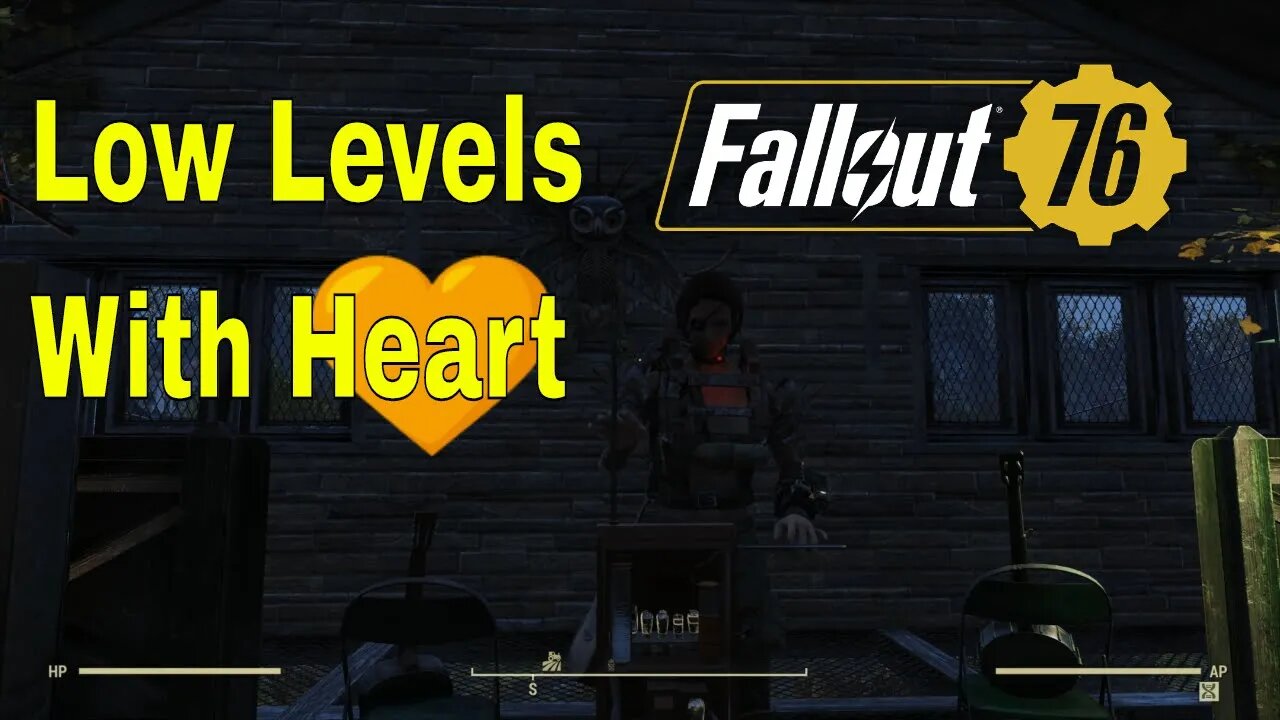Premium Only Content

Fallout 76 Low Levels With Heart & Gamer Privilege
Pandemic Puts Video Game Privileges in Perspective
As the quarantine continues, nothing in our lives will remain unaffected, including our relationship with video games. Gamers and the game industry need to be prepared for whatever happens next.
Jordan Minor
By Jordan Minor
April 17, 2020
Gamers like to hold onto the misguided belief that our chosen hobby is above and apart from everything else in the world. But right now, the pandemic brought on by COVID-19 impacts everything in the world, and that includes video games. Seeing as gaming is a leisure activity easily done from home, the quarantine has some of us playing more games than ever, not just for fun but for unexpected exercise and socializing, too.
Unfortunately, the video game industry can’t escape the negative consequences of the lockdown. E3 and other events have been canceled. The Last of Us Part II and other games have been delayed. GameStop can argue all it wants that it’s an essential business, but the gaming retail giant is as close as it has ever been to the grave.
Games will eventually release and trade shows will eventually go on. Life will hopefully return to some kind of normalcy. However, even beyond these tangible examples of COVID-19’s effect on gaming, I think this strange period we currently find ourselves in is making us question some things about the hobby we previously took for granted. The pandemic is putting our video game privileges into perspective. Gamers and game companies alike need to be prepared for what happens if and when those privileges get revoked.
Half-Life’s Half of a Life
Half-Life is one of the most beloved and important franchises in video games. The 1996 original was a landmark first-person shooter. It pushed the genre to new heights technologically, with immersive interactive mechanics, as well as artistically, with a bold approach to storytelling. Valve’s Steam marketplace became a de facto monopoly for digital PC game sales thanks to the power of Half-Life 2. Arguably no cliffhanger in gaming has been more tortuous than the ending of Half-Life 2: Episode 2 in 2007.
So, how is it possible that so many people simply do not care about the first new Half-Life released in 13 years? It’s because Half-Life: Alyx, released just a month ago, is a virtual reality game, a gaming privilege we can no longer afford.
Despite being pushed as the next big thing for years now, VR gaming has always been an iffy prospect. Even before we all locked ourselves inside, people weren’t rushing out in droves to buy uncomfortable and nausea-inducing headsets. If anything, sealing yourself off in a virtual world sounds even more appealing as the real world falls apart. However, when you factor in not just the headset but the computer needed to power it, even for gaming hardware VR’s costs outweigh its benefits.
Half-Life: Alyx seems legitimately great and, considering the modest competition, it's the most exciting VR game by far. I’ve been giving it the backhanded compliment of “Sonic CD for a new generation,” since that was also a fantastic game trapped on its publisher’s off-putting hardware add-on. It’s just tough to justify the price when you’re still waiting for your government stimulus check to pay rent. Valve could use Half-Life to sell Steam because Steam (eventually) was just an easier way to buy PC games. The software was the opposite of a barrier to entry, unlike Valve’s VR hardware. No wonder so many Half-Life fans are waiting for mods that remove the headset requirement.
It didn't take a pandemic to realize VR wasn't catching on with the mainstream. However, the lesson for Valve and other VR boosters is now loud and clear. No matter how innovative it may be, new gaming tech can only leave so much of an impact if it's only accessible to folks with iron stomachs and golden parachutes.
Read more https://www.pcmag.com/opinions/coronavirus-pandemic-puts-video-game-privileges-in-perspective
-
 19:38
19:38
Lorespade
1 year ago $0.02 earnedDeed And Shares Payout Show Weekly For Entropia Universe Oct 16th 2023
392 -
 LIVE
LIVE
BonginoReport
1 hour agoAfter Weeks of Cheering on Gun Violence, Left Calls for Gun Control (Ep.106) - 12/17/2024
9,412 watching -
 LIVE
LIVE
Wendy Bell Radio
4 hours agoThe Swamp's Chickens Come Home to Roost
8,347 watching -
 1:18:54
1:18:54
Game On!
8 hours ago $1.64 earnedVikings and Falcons DOMINATE on Monday Night Football!
16.2K1 -
 LIVE
LIVE
The Sufari Hub
6 hours agoHUGE 5 DAY GAMING STREAM | Marvel Rivals & Fortnite and MORE
285 watching -
 8:51
8:51
Guns & Gadgets 2nd Amendment News
1 day agoDrones Putting National Security At Risk?!
26K20 -
 14:35
14:35
Josh Pate's College Football Show
22 hours ago $2.52 earnedFULL CFP Bracket Predictions and National Title Pick
12.9K2 -
 1:08:22
1:08:22
MTNTOUGH Fitness Lab
23 hours agoWyatt Ewing: Inside Ice Barrel's CEO's New Innovative Cold Therapy Solution
9.04K -
 19:42
19:42
NC Dirt Hunter
1 day agoWhere the Union shells landed. Metal Detecting a Civil War Battle
5.45K4 -
 5:47
5:47
DEADBUGsays
1 day agoThe C.E.O Assassin (ALL NEW)
17.9K5